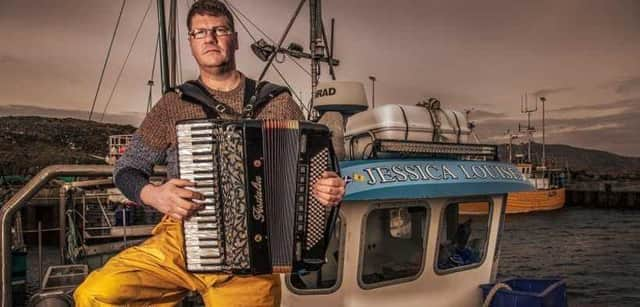HPMAs: ‘I don’t think they have stopped’


The statement to MSPs was made just before the start of the summer recess by Mairi McAllan, the Cabinet Secretary with responsibility for the policy. Ms McAllan also initiated the consultation in December last year which attracted thousands of negative responses which, she said, are still being “assessed”.
Ms McAllan made clear that other measures are still being pursued and had only been put on hold prior to the Covid pandemic. She told MSPs. “We have an on-going programme to implement fisheries management measures in existing MPAs (Marine Protection Areas) where they are yet to be introduced, and to protect some of the most vulnerable Priority Marine Features outside the MPA network.
Advertisement
Hide AdAdvertisement
Hide Ad“Those measures were delayed by Brexit and the Covid-19 pandemic. However, we are committed to putting them in place as soon as possible and I welcome the fishing industry’s support in moving them forward”.
Earlier this year, the Gazette revealed the existence of charts drawn up by NatureScot, formerly Scottish Natural Heritage, for extensive areas which they would be putting forward for designation as Priority Marine Features.
These had not been consulted on and covered large sea areas within the Western Isles which were also anticipated as potential HPMAs and appeared to “target” waters in which there is fishing activity.
The current concern is that stronger enforcement of MPAs in addition to the introduction of Priority Marine Features would have much the same effect on fishing activity as the measures proposed in the HPMA consultation document.
Advertisement
Hide AdAdvertisement
Hide AdStressing the role of the Green Party, Ms McAllan told MSPs: “Highly Protected Marine Areas are part of the Bute House Agreement, and I welcome the constructive engagement that I have had with the Green group as we have developed our thinking on this critical issue.”
This support from the Greens for the new approach has encouraged scepticism about what it actually entails. In response to Ms McAllan’s statement, Tory spokeswoman, Rachael Hamilton, referred to a “Bute House fudge” while Labour’s Rhoda Grant wanted assurances that it was not a case of “HPMAs by the back door”.
Hector Stewart of Kallin Shellfish in Uist said: “It will be a divide and rule thing now. I think they have been given a scare and it will be more targeted.
"The timescales might be different but I don’t think they’ve stopped. They will go for the scallopers first. All of these measures lead to no-fish areas and the economic implications are the same”.
Advertisement
Hide AdAdvertisement
Hide AdDonald Crichton, chairman of Comhairle nan Eilean Siar’s sustainable development committee, said: “The decision to drop HPMAs on a 2026 timescale is obviously welcome and probably inevitable given the overwhelming opposition to these proposals but I don’t think anyone is complacent about what comes next.
“There now needs to be genuine consultation about the whole range of measures that are in the pipeline and which would disproportionately affect the Western Isles.”
Mr Crichton added: “Lessons need to be learned from this experience if there is to be any trust in the process going forward”.
Following the Holyrood statement, Alasdair Allan MSP said: “The news that the Government will not seek to progress the HPMA proposals represents a very welcome change of tack, which will be greeted with relief along the west coast.
Advertisement
Hide AdAdvertisement
Hide Ad"Fishers have more at stake than anyone in ensuring that our seas are sustainable, so what can the Government now do to ensure that fishing communities are at the heart of future fishing policy?”
In response, Ms McAllan replied: “ I intend to establish a dialogue on the benefits of enhancing marine protection that allows that to happen”.
The band Skipinnish, whose song ‘The Clearances Again” played an influential part in the campaign, posted that intitial “relief and joy” about the announcement was modified “after actually watching Màiri McAllan deliver her statement and listening to the dialogue following this”.
The band’s statement continued: “It is clear that this is in fact more clever political games designed to pacify the protest movement and give the SNP and Green coalition time to regroup and hit us again with HPMA2 under a different name and timescale”.
Advertisement
Hide AdAdvertisement
Hide AdIt added: “We are delighted that the collective protest that Skipinnish has been proud to play a part in has had the effect of at least stalling this unjust, ill-conceived atrocity being launched against our island and coastal communities, but it is now more important than ever, that the voice of these communities remains strong.
“There is indeed a climate crisis hitting the planet, but it is certainly not being caused by low-impact and small-scale fishing operations of the Highlands, Island and fragile coastal communities of Scotland”.